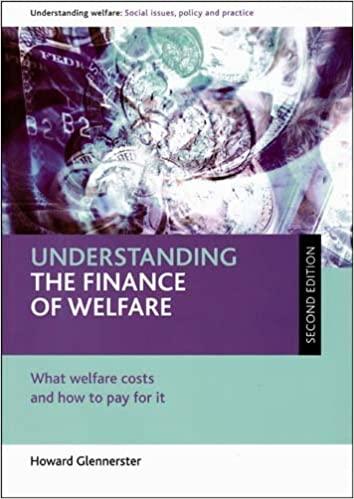Question
Information for Question 1-5: Your house is valued at $200,000. Your car is worth $20,000. Your checking account has $3,000. Your saving account has $6,000.
Information for Question 1-5:
Your house is valued at $200,000. Your car is worth $20,000. Your checking account has $3,000. Your saving account has $6,000. The value of your 401(k) account is $20,500.
Your outstanding 15-year mortgage balance is $140,000. Your outstanding 4-year student loan balance is $30,000. Your outstanding 5-year auto loan balance is $10,000. Your outstanding credit card balance is $1,000. You also have a utilities bill of $200, a medical bill of $300, and a property tax bill of $2,000.
1. Whats the total value of your assets?
a. $249,500
b. $229,000
c. $246,500
d. $243,500
2. Whats the total value of your liabilities?
a. $183,300
b. $181,200
c. $183,500
d. $173,500
3. Whats the value of your net worth?
a. $66,000
b. $73,000
c. $47,800
d. $60,200
4. Which of your assets are generally considered liquid assets?
a. Checking & Saving Accounts
b. 401(k)
c. Car
d. House
5. Which of your liabilities are generally considered long-term liabilities
a. property tax bill
b. Credit card balance
c. Mortgage, auto loan, student loan
d Utilities bill and medical bill
Step by Step Solution
There are 3 Steps involved in it
Step: 1

Get Instant Access to Expert-Tailored Solutions
See step-by-step solutions with expert insights and AI powered tools for academic success
Step: 2

Step: 3

Ace Your Homework with AI
Get the answers you need in no time with our AI-driven, step-by-step assistance
Get Started


